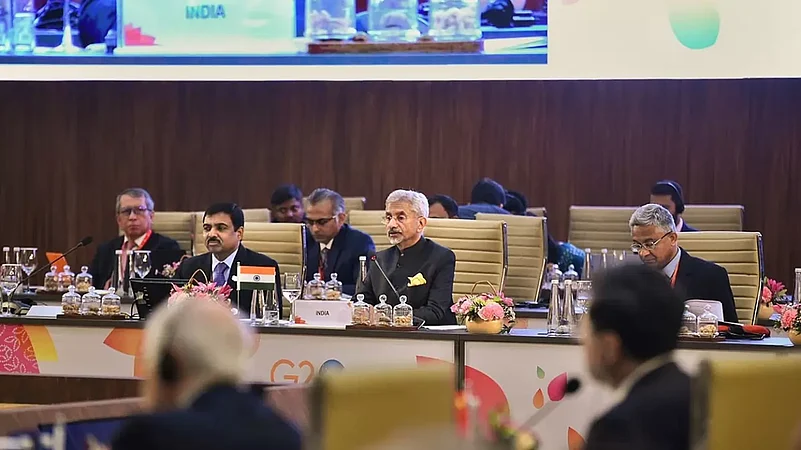With the world divided on Ukraine, India has the tough task at the G20 foreign ministers meeting to reconcile the differences between the opposing sides to come up with an outcome document at the end. India’s attempt over the next two days will be to ensure how best the G20 can come together to dilute the economic and financial impact of the pandemic as well as the ongoing Russia-Ukraine war on countries across the world, more so the vulnerable global south. But in a polarized atmosphere where Ukraine is on top of Europe and the Russian agenda, it is hardly likely that the Russian and western foreign ministers will not use the opportunity to throw barbs at each other and divert attention from the world economy.
Advertisement
Developing countries have been worst hit by the current crisis. New Delhi had from the beginning promised that during its chairmanship of the G20, it will bat for the developing world and focus on food and energy security as well as climate change, issues that are of vital interest to the global south.
This was reiterated by Prime Minister Narendra Modi in his brief video address to the gathering of foreign ministers this morning.
"Many developing countries are struggling with unsustainable debt while trying to ensure food and energy security for their people. They are also the ones most affected by global warming caused by richer countries. This is why India's G20 Presidency has tried to give a voice to the Global South. No group can claim global leadership without listening to those most affected by its decisions." the Prime Minister said.
Advertisement
His foreign minister Subrahmanyam Jaishankar echoed the PM in his opening address. "Excellencies, let us remind ourselves that this grouping bears an exceptional responsibility. We first came together in the midst of a global crisis and are today, once again, actually confronting multiple ones. These include the impact of the Covid pandemic, concerns of fragile supply chains, the knock-on effects of ongoing conflicts, anxiety of debt crises, and the disruption of climate events." If India can get the G20 representatives to focus on the economy instead of getting into a polarized debate on Ukraine, the conference would have served its purpose, whether a communique is released in the end or not.
After all, G20 started as a result of the Asian financial crisis way back in 1999. Initially, it was a meeting of finance ministers and reserve bank governors. By 2007, it was upgraded to the level of head of state and by 2009, it became the premier forum for international economic cooperation. If India is able to get members to cooperate on getting economies working and extend help to countries struggling since the double whammy of the pandemic and the Ukraine war, it would be a major achievement.
Except for Japan’s foreign minister who could not make it to Delhi, all others, including Russia’s Sergey Lavrov, America’s Antony Blinken as well as China’s Qin Gang are attending. Jaishankar is also holding back-to-back meetings with his counterparts. Perhaps the one with the most interest for Indians is Jaishankar’s talks with China’s Qin. Not that anyone is expecting a breakthrough, but the groundwork can be laid for a meeting between Prime Minister and President Xi Jinping when he visits India for the Shanghai Cooperation Organisation meeting and the G20 summit later in the year.
Advertisement
"India’s chairmanship of G-20 comes at an opportune time when the world is moving away from globalization to restricted national silos. In a half-filled bottle syndrome, India has the chance to really shake up the bottle and take up the cause of the global south which is largely unrepresented in G20. South Africa is a single country that represents the entire African continent. So here is an opportunity for India to get back to the fifties and sixties when India showed a new light to the emerging world," Ambassador Rajiv Dogra said. He added, "Economic and financial issues were the raison d’etre of G20, but over the last one year acrimony and conflict have taken centre-stage. Today’s meeting is a test for the entire G20 . Will it get into the swamp of the west against Russia and China verbiage? Or will the ministers show statesmanship and think of debt relief packages for countries in distress."
Advertisement
India is steering the G20 at a time when the global consensus on important issues has broken down. Capitalism as well as multinational institutions are in a crisis. Yet, as ambassador Dogra said, it is also an opportunity for India to help the global south. Whether Jaishankar succeeds in getting his fellow foreign ministers to agree will be known when the meeting ends on Friday.




















